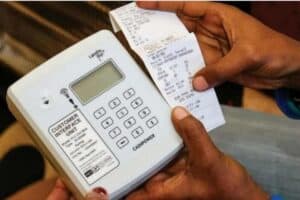The report released by the SIU placed the blame squarely at the feet of Eskom officials who ignored repeated warnings that coal stocks were running low.

The first round of load shedding experienced by the country in 2008 reportedly cost South Africa R14.5-trillion – a fee which allegedly went towards funding emergency contracts signed by Eskom to benefit coal suppliers.
This is according to the report compiled and published by the Special Investigating Unit (SIU) which was handed to former president Jacob Zuma in 2017, but never officially released.
City Press reports that Eskom employees engineered load-shedding in an effort to ensure the signing of long-term coal contracts which were handed out without proper tender processes.
“The figure of R14.5 trillion is … the total value of all coal contracts entered into during the emergency-period negotiations at Eskom. The value is the cost of the contracts for the entire duration of the contract,” wrote SIU spokesperson Nazreen Pandor in a written reply to the publication.
“The emergency situation that Eskom found itself in was self-created and thus, could have been avoided by the exercise of reasonable care,” stated the report which placed the blame squarely at the feet of Eskom officials who ignored repeated warnings that coal stocks were running low.
“The board of directors did not respond to warnings that the coal stocks were reaching dangerously low levels prior to January 2008 and that the threat of load shedding was a strong possibility. Had the board heeded such warnings, proper planning could have prevented the situation which led to the emergency procurement of coal. The emergency could have been avoided and the cost of procuring additional coal at a mandated value of R14.5 trillion could have been avoided,” read part of the report.
Acording to the SIU, the starling figure attached to the 2008 crisis can be partly attributed to the fact that Eskom was forced to buy coal from mines which were fetching between R1 400 and R1 600 a ton on the export market.
The power utility then had to increase its prices significantly to divert coal meant for export markets to power stations due to the fact that they were paying around R150 a ton for said coal.
Eskom stated that it would only be able to respond to questions surrounding the report next week.
READ NEXT: Eskom rubbishes false ‘radioactivity’ claims made by Willem Petzer
(Compiled by Kaunda Selisho)
For more news your way, download The Citizen’s app for iOS and Android.






